We asked:
Who will step up to lead and shape the future of global cooperation?
How can we collaborate to emerge as a stronger and more equitable global economy?
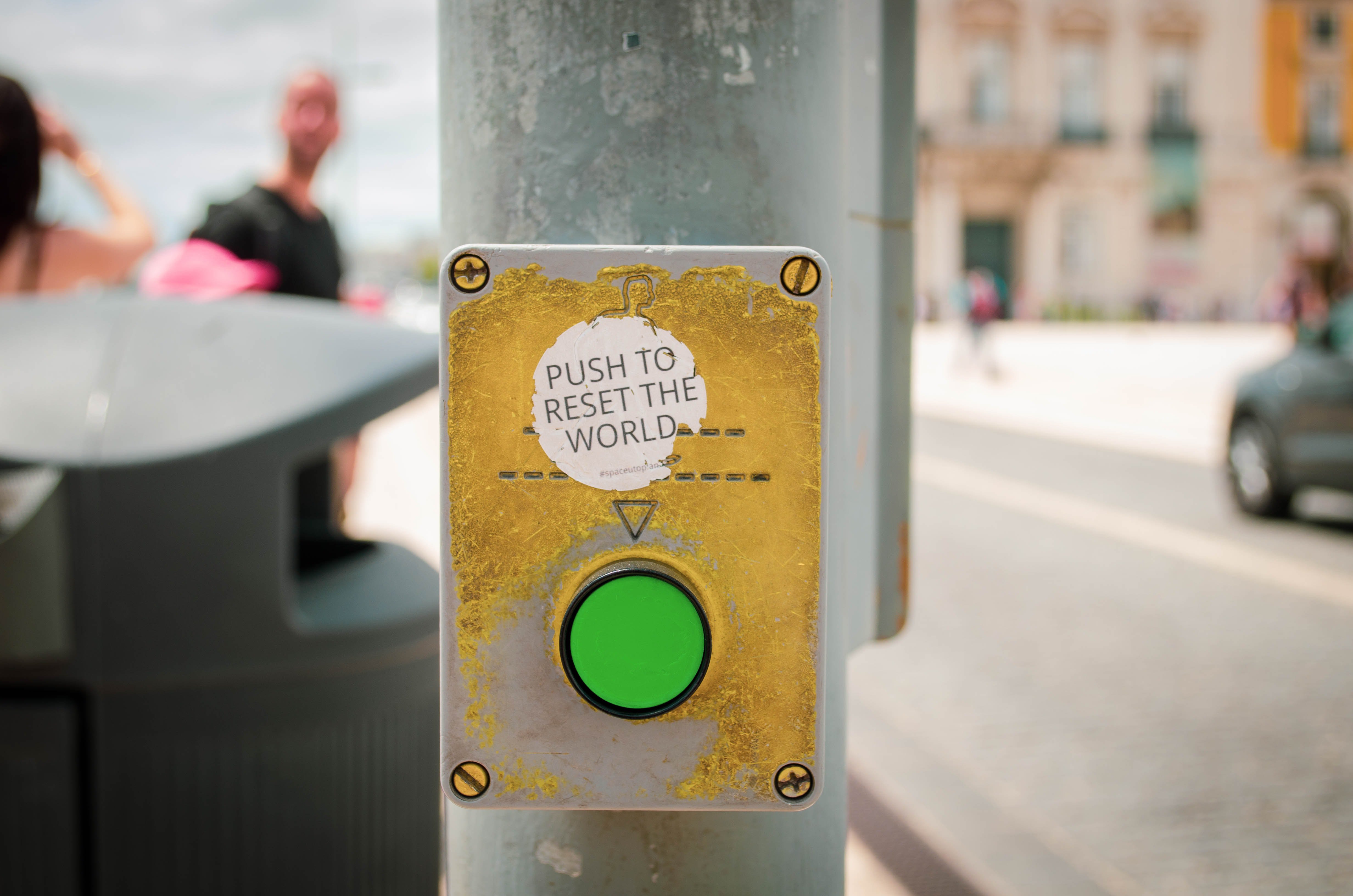
The Covid-19 crisis brought the world to a sudden standstill. The economic impacts continue to look worse each day. Hard-won democratic rights and freedoms were already being challenged before the pandemic struck and are even more at risk now. The crisis has also exposed a lack of global cooperation and collective leadership.
We used our sixtieth anniversary to start a conversation about the practical steps required to create more resilient, equal societies and reimagine a world beyond coronavirus. The Global Reset Dialogue invited leaders from around the world to share their recommendations in response to four key questions.
We heard from Nobel Laureates, current and former heads of state, CEOs, eminent academics, civil society leaders and more.
Who will step up to lead and shape the future of global cooperation?
How can we collaborate to emerge as a stronger and more equitable global economy?
What has to happen next on climate change?
What actions are needed to ensure that we don’t lose ground on the progress made on human rights over the past decades?
We need a global reset that encourages effective leadership, just societies and the advancement of human rights and peace, alongside a sustainable economic recovery, writes our Chief Executive Sara Pantuliano.

Research Associate

Visiting Senior Fellow


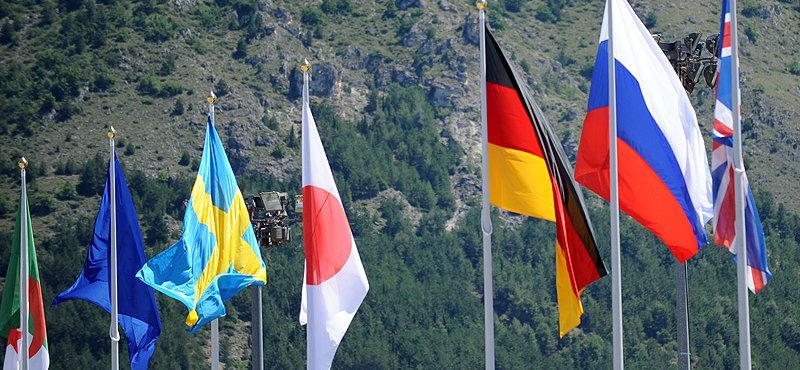
The response to the coronavirus crisis has generated a heated debate about international cooperation – or rather its absence. Some point to countries pursuing nationalistic agendas, and find international institutions badly wanting. They ask what has happened to the G20. Others leap to the defence of the World Health Organization (WHO), and cite the positive moves of the International Monetary Fund (IMF), the World Bank and the EU. All agree, however, that the geopolitical context is in the process of transformation, in a multi-polar world where power is being wielded by new actors with different interests and aspirations.
New vision and leadership will be essential to dispel uncertainty and overcome the current crisis of legitimacy of the multilateral system. But what new forms of global cooperation can emerge from the Covid-19 crisis? What shape should they take? Is there still a role to be played by Bretton Woods institutions? What about regional structures and different networks of leaders, such as mayors of large municipalities, or civil society voices? And what new coalitions and ways of working could emerge?
Our Chief Executive Sara Pantuliano responds to ideas shared by leaders below for how to reshape global leadership in light of the pandemic.
Co-Chair of the Bill & Melinda Gates Foundation
@melindagates @gatesfoundation
Multilateral organisations, like the World Health Organization (WHO) and the World Bank, are critical to the world’s recovery from Covid-19. But we should be paying as much attention to community-level organisations as we do the big global bodies. Especially when those organisations are run by (and for) women.
In low- and middle-income countries, grassroots women’s groups, like empowerment collectives, are helping the poorest and most marginalised women through the pandemic. These organisations’ extensive, decentralised networks let them reach even the most marginalised women with trusted information, such as what the symptoms of the disease are and how women can protect themselves, their family and their community.
At the beginning of the pandemic, one coordinator from the Democratic Republic of Congo told the WHO how these groups had been helpful during the 2014 West African Ebola. “At [first] local women saw these men in jackets doing ‘Ebola business’ and thought, this doesn’t really concern us,” she noted. “Then as women leaders from [the community] became involved, other women started to listen.”
If we want a truly inclusive recovery, then we need to empower leaders – particularly, women leaders. And not just in the old halls of power that the world is used to watching. But also in the places that the world rarely looks.
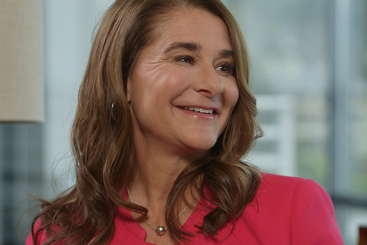
Mayor of Freetown, Sierra Leone
“We won’t succeed until we are talking to people under the Mango tree”, an experienced Uganda medical doctor told me as Sierra Leone grappled to get a hold of its Ebola outbreak in late 2014. His point – that we needed to sit and discuss the situation with people, listen to their concerns and find ways forward, not talk at them – applies as much to global cooperation as it does to governing a city like Freetown.
Local leaders like Mayors have a critical role to play in reinvigorating global cooperation efforts. First, by listening to, and learning from, a wide array of voices in the communities they serve, to develop action plans. And then in ensuring that these ‘under the Mango tree’ conversations become an integral part of global dialogues aimed at fostering cooperation on issues that matter most to residents.
Freetown has already benefitted enormously from knowledge sharing on cross-city platforms, but we must continue to reinvigorate global cooperation to focus more on highlighting the experiences of communities in ways that can facilitate co-learning and address development challenges. Elected local leaders are the natural conduits of such an approach.
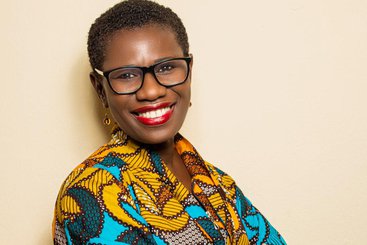
President of Xinhua News Agency
The Covid-19 pandemic is the most serious global public health emergency since the end of World War II. The sudden emergence and rapid spread of the virus has underlined the importance of international cooperation and global governance. In proposing a solution, I wish to invoke the call of Chinese President Xi Jinping for jointly building a community of health for all.
All countries should build consensus and strengthen cooperation in the interests of humankind. The virus does not respect borders. In the face of the epidemic, humankind is a community with a shared future. The virtue of solidarity and cooperation, as our most powerful weapon to defeat the virus, is an important lesson gained by the international community in the fight against the pandemic. Only when all countries unite to strengthen information sharing, conduct scientific research, and build a network of joint prevention and control can we win the global battle against Covid-19.
We should uphold multilateralism and support the role of international organisations, especially the leading role of the World Health Organization (WHO) in global public health governance. Facts show that epidemic situation has been more effectively contained in countries that followed the WHO's recommendations in their response. We should also support existing multilateral mechanisms to strengthen international macroeconomic policy coordination, maintain the stability and flow of the global industrial and supply chains, and ensure smooth functioning of the global economy.
Finally, we need to pool the strength of all sectors of society. In the field of vaccine and drug research and development, scientific research institutions and companies can carry out more transnational cooperation. Think tanks can bolster exchanges to advise on the global response to the pandemic. Media outlets around the world can make an attempt to establish coordination mechanisms to fight the infodemic, squash rumours and eliminate panic.
Former Prime Minister of New Zealand
The Covid-19 pandemic moved quickly from a health crisis to a full blown economic and social crisis on a global scale. No single body in the international system has the mandate or means to lead a crisis of this breadth and depth.
What is called for is a standing Pandemic Emergency Coordination Council. It should be comprised of the United Nations Secretary-General (UNSG), the Director-General of the World Health Organization (WHO), the Executive Director of the International Monetary Fund (IMF), and the President of the World Bank. It should be convened by the UNSG at the earliest stage of a pandemic.
These four key office holders have huge convening power across leaders and key ministers. They should lead on mobilising resources and action to deal with the impacts of the pandemic, liaising closely with the G20 mechanisms. It’s time they used that power.
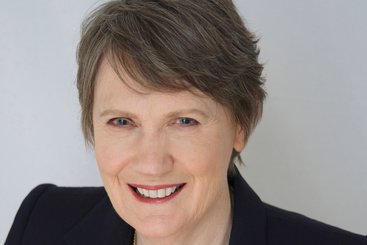
President and Chief Executive Officer of the International Rescue Committee
@DMiliband @RESCUEorg
Covid-19 has shown the dangers posed by holes in the global safety net. It is hitting the poorest hardest in rich countries. It is also now threatening poor countries, especially fragile and conflict states, with both a health and socioeconomic emergency. We need to learn the right lessons from our cooperation during Covid-19. For me these include the following.
Fill the holes in the global safety net. Universal health coverage needs to become a goal with an implementation plan, not just a rhetorical hope. Address the weakness of global institutions. Covid-19 is a disease of mismanaged globalisation. We need a stronger, more independent, better funded World Health Organization (WHO).When governments are in retreat, civil society and the private sector need to step up. This is a different form of multilateralism, going beyond inter-state cooperation. The disease hits people and societies with a gender and race lens, and the response must do so too. For example, we know 70% of the global caring workforce are women, and so there is extra exposure to the disease. We need to recognise how inequalities are multiplied in a crisis, and build back differently.
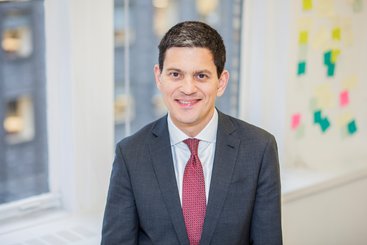
Prime Minister of Sudan
Since early March 2020, when Sudan first felt the impact of Covid-19, our world was shocked in a way that we have not experienced in the last century. Coming out of 30 years of tyrannical rule, the negative impact has been accentuated by the international community using “old rules” to determine the response to a virus that knows no national boundaries, be it rich or poor. We all feel the impact in the same way, but the magnitude is different.
Old international norms and rules of the game have been turned on their head. Whether a new international global order will emerge still needs to be seen. What we have learnt is that there is a need to focus on human needs – those of health, education, employment and food security. If there is to be a positive outcome from Covid-19, it will require a rewriting of outdated international norms and rules. We now have global pandemics to deal with in addition to global climate change. Global challenges require new, not outdated global responses.
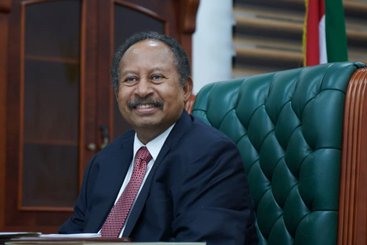
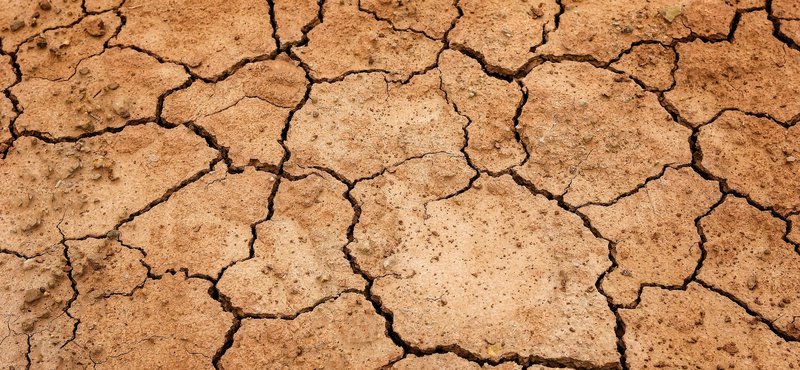
With respect to climate change, greenhouse gas emissions were rising globally, not falling, before the virus struck. Will the expected fall in 2020 be a blip or can it mark a step change towards greener and more resilient societies? Some think the politics and financing of a climate transition will be easier after the immediate Covid-19 crisis. Others think it will be much harder to find the finance needed for transformative transitions, especially in poor countries with little fiscal space.
Furthermore, there seems to be a tension between those who think the answer to Covid-19 recovery is accelerated economic growth, and those who yearn for a simpler life. Can those two really be reconciled by some version of green growth? And finally, linking these themes together, equality has been a prominent part of the debate about the Covid-19 recovery. Climate change hits some countries, regions, generations and social groups much more than others. How can action on climate change contribute to a more equal world?
Global leaders' ideas (below) for tackling the climate crisis in a Covid-19 era can be summarised by a four-point roadmap, says Simon Maxwell: motivate, mobilise, manage and repeat.
Senior Fellow, Institute for New Economic Thinking
Covid-19 is a massive health crisis and a huge short-term economic shock, and many developing economies will need financial assistance to survive the short-term storm. It highlights the importance of anticipating risks, and should spur us to invest in the zero carbon economy needed to avoid catastrophic climate change, which would hit low income countries hardest.
But the crisis will also accelerate long-term structural trends in the global economy, as companies in many sectors seek to shorten their supply chains and automate as many work activities as possible; workers get sick, robots don’t.
Faced with these challenges, a more productive, resilient and environmentally sustainable global economy could emerge, but it could also be one where adequate job creation in emerging economies has become even more difficult. Thoughtful leadership – intellectual and political – will be essential to seize the opportunities while avoiding the dangers.
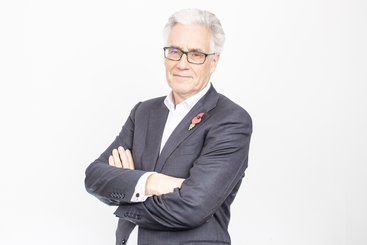
CEO, European Climate Foundation
The Covid-19 crisis has shown us that we live in a deeply interconnected world. It has shown us that climate, environment, health, and prosperity are strongly linked.
We can use this moment to think differently and recover better. The German recovery plan is a promising model. On the European level, the EU’s Green Deal is the roadmap to exit this crisis. It can guide Europe’s investment decisions to build a world-leading resilient and climate-neutral economy. And just as importantly, the Green Deal can be the way Europe rebuilds a new social contract to reconnect governments with citizens by redefining their understanding of global public goods. A continent with better air quality will reduce respiratory illnesses, investment in energy efficiency will drive a surge in jobs. Electrifying transport will reduce reliance on volatile global oil markets.
We have a window of opportunity for discussion in the wake of this crisis. We should rebuild our system of international cooperation, moving from siloed diplomatic discussions on specific topics such as climate to a broader approach that integrates the management of the new global commons together. We need to move from “climate diplomacy” to a diplomacy built on a green and sustainable recovery.
Deputy Director General for Science, International Institute for Applied Systems Analysis
The world today has a unique opportunity to move from marginal changes to transformative re-development. Using decentralised models of growth, building on opportunities provided by digitalisation and artificial intelligence – with a focus on meeting service needs rather than promoting ownership of products – could ensure climate-friendly sustainable development with a more equitable distribution of wealth.
By deploying alternate ways for rewarding intellectual property to ensure continued globalisation of knowledge and opportunities, production must become localised and consumption responsible. The resulting reductions in demand for energy, materials, mobility and construction could drastically reduce our greenhouse gas emissions.
Simultaneously, the under-privileged segments of society must be empowered quickly through access to financial products and services, the digital economy and gainful employment. Developing a clear, inclusive vision for a new growth paradigm, operationalised by robust integrated policies and measures and incentivised by approved stimulus packages, may be the solution for a climate secure world for all.
Minister for the Ecological Transition of Spain
The Covid-19 crisis has been unexpected, shocking and painful in many ways. We have learnt the importance of counting on a proper system to assess risks, strengthen resilience and avoid growing debt for young people and future generations. That also applies to the climate crisis. And we already knew it. What next? Being consistent.
The protection of our common goods – climate, ocean and land – our natural capital, needs to be decisive. And by rooting climate and nature at all levels of public and private decisions, it can be.
Climate and environmental protection need to be put upfront, through a transformational approach to action, breaking our silo mentality with cross-cutting and inclusive solutions.
Governments are called upon to send the right signals. They can set up enabling frameworks to change the current state of play and help redirect public and private investments, consumption and taxation away from harmful subsidies and towards green priorities. Green budgeting, sovereign green bonds, carbon pricing and phasing out of fossil fuel subsidies deserve more attention. Financial regulation that mainstreams climate in portfolios and ensures we are ready to disclose and manage climate-related risk is also important. We need economic and fiscal policies to help promote a climate neutral, circular economy that protects our people and our ecosystems.
In short, this is about creating added value and making environmental, social and economic sense. There is no better way to build a more secure world, generate opportunities for decent jobs, wealth and fairness, and avoid the mistakes we made in the past.
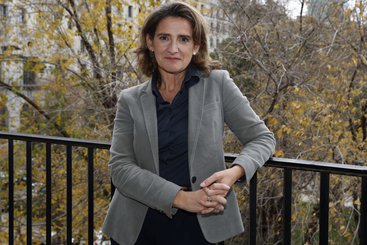
Chair of the Elders & former President of Ireland
Last January I was near despair. 2020 had started with no sign of the ambition needed from governments and sectors to comply with the IPCC’s 2018 report. Then Covid-19 hit the world in a devastating way. It was a health crisis, but it also froze the economies of the world and stopped business as usual. Covid-19 exacerbated existing inequalities but taught us that collective human behaviour matters, that government leadership matters, that science matters and that compassion and collaboration matter.
We cannot return to business as usual but must build back better with a green and inclusive recovery. Every country, corporation and city must commit to zero carbon by 2050, and we must restore biodiversity and plan nature-based solutions. This will require more borrowing at a time of global recession. But it is our children’s money we will borrow so that they will have a good future.
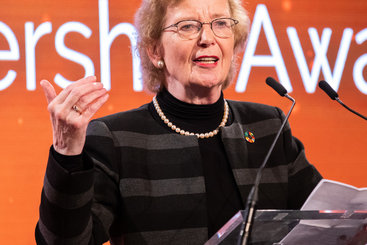
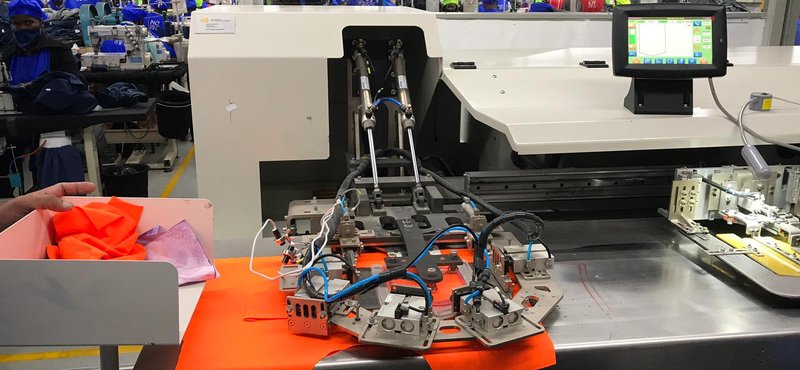
Covid-19 has initiated a churn in economic thinking. The traditional discourse on globalisation and export led growth, already beleaguered since 2008, is being fundamentally questioned. The problem of equity amidst unprecedented global prosperity has acquired an immediate urgency.
Given the global impact of this pandemic and its cross-border consequences, is the traditional classification of developed, emerging and low-income economies still fit for purpose? How do we address the danger that increases in poverty and socioeconomic vulnerability of the poorest nations, and the poorest within nations?
Will this receive insufficient attention? How will economic recovery and social cohesion be impacted by changes in production and consumption patterns, and our ability to cope with the human distress caused by this pandemic?
The global leaders below identified three economic issues that will be important in the world emerging from Covid-19, says our Managing Director Rathin Roy: redirect finance, cooperate globally and redefine the system.
Fellow in Economics at St Edmund Hall, Oxford University and Adjunct Professor of Economics, London Business School
We can learn from history to do this. I’ve looked at 250 years of economic history and there have been similar periods when the consensus had broken down. An economic system that worked for the 18th century did not work for the 19th century. The model of the 19th century did not work for the 20th century. Forming a new consensus is how the economic system was transformed from one based on the Industrial Revolution of the 18th and 19th centuries into the welfare state capitalism of the 20th century.
The current consensus has been challenged since before the pandemic. The backlash against globalisation, the discontent over inequality, concern over the climate crisis, and other issues had fueled a dissatisfaction with the status quo. There was a growing debate over the need for reforms and even a search for an alternative economic system. Covid-19 has exacerbated that trend.
When the consensus broke down before, it brought about a battle of ideas. In the 19th century, the late Victorians debated providing a social safety net. In the 20th century, communism vied with free market ideology prominently during the Cold War. The 20th century also saw the creation, after much debate, of the supra-national institutions that constitute the current global governance system.
And that is how a new consensus is formed – through a battle of ideas. It requires widespread constructive engagement and evidence-based debates over what an equitable economic system that works for people and the planet would look like. This means economists and experts from a range of disciplines engaging the public with their ideas. It entails civil society, working at the grassroots level, raising the issues that need to be changed. In short, it requires all segments of society to engage and eventually come to a new consensus on the global system that is best suited to the economic and social needs of the 21st century world.
It is a daunting task. But history shows us it can be done and that the world will be better as a result. And it’s worth remembering what Nelson Mandela said: “It always seems impossible until it’s done.”
Professor of Gender and Development at London School of Economics and Political Science
Covid-19 has been a human crisis in a very literal sense, attacking society at its very core - life, health, wellbeing and productivity - the very capabilities that make us human. It has been an existential crisis, exposing our vulnerabilities and interdependence: none of us can be safe from the virus until we are all safe. And it has revealed the stark inequalities that divide our societies, inequalities of economic deprivation amplified by those of identity, location and voice. We knew these inequalities existed, but did we realize their depth and scale?
Few of us want to return to the top-down economic models that generated these inequalities. Many of us would like to build upwards from our human base. We would like to see greater public investment in social infrastructure, the essential services that contribute directly to our human capabilities and are guaranteed to all. These include reproductive services vital for mothers and children and broader health services necessary for the entire population. They include good quality education and provision for life-long learning so that everyone is equipped to work out ways to benefit from changing opportunity structures and to withstand the inevitable crises of the future. They include care services that will support and redistribute the unpaid labour of looking after the old, the young, the disabled and the elderly generally provided by women within the home, so allowing them to participate more fully in the public domain.
A guaranteed social infrastructure creates people whose well-being, productivity and resilience becomes the backbone of the new economy – its means and its ends. It creates jobs that are essential in both ordinary and extraordinary times. And it creates more equitable societies by providing all citizens with a basic minimum social floor from which they can navigate a better life for themselves and their families.
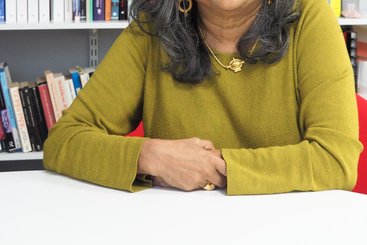
Managing Director, International Monetary Fund
The Covid-19 pandemic is a crisis like no other. No country has been spared from its health, economic and social impacts.
The global economy is projected to contract by 4.9% in 2020 and, while we project a partial recovery next year, tremendous uncertainty remains. Above all else, this a human crisis. Each life lost is a personal tragedy, and each worker who loses their job faces significant hardship. The impact of the crisis on people in low-income households is particularly severe, jeopardising the significant progress achieved in reducing poverty in the world over the past decades.
Immediate priorities are to continue containment measures and prioritise health spending where the pandemic is accelerating, provide lifelines to workers and businesses to cushion the impact of the crisis and help avoid long-lasting scarring. Where economies are moving towards reopening, we must reduce health-related uncertainty while gradually encouraging a return to work.
Looking to the future, we have a great opportunity to build a more resilient and more equitable global economy. We need to think about a future not merely built on output volumes, but on the quality of economic activity and social cohesion.
What would such an economy look like? It would include adopting more sustainable and progressive fiscal policies, actions to ensure access to opportunities are shared more widely, removal of economic distortions and trade barriers, as well as measures to rein in pollution and address climate change.
The benefits are immense. Promoting a low-carbon recovery would create millions of jobs. With half of the world’s population still lacking internet access, investing in digital skills and infrastructure would generate countless opportunities while reducing inequality.
Building a stronger and more equitable global economy can only succeed if we work together. The International Monetary Fund stands ready to help build this better world.

Professor at Columbia University
The Covid-19 pandemic has exposed many weaknesses in both national and global economies, including inequalities of income, wealth, and health. Developing countries and emerging markets simply don’t have the resources to effectively protect the health of their citizens and their economies. The pandemic may prove to be particularly hard on countries that are highly indebted and face a large domestic pandemic and/or international shocks from declining exports, adverse terms of trade, and reversals in capital flows.
While much of the world went on hold during the pandemic, this was not true of the financial sector. It continued to charge interest, leaving countries even more financially strapped. Unfortunately, the world does not have a framework for the orderly restructuring of sovereign debt, even though the UN General Assembly (UNGA) adopted a set of principles for guiding these restructurings. The establishment of such a framework was one of the key reforms urged by the International Commission of Experts on Reforms of the International Monetary and Financial System, appointed by the president of the UNGA in the aftermath of the 2008 global financial crisis.
Among the many measures that should be taken to create a stronger and more equitable global economy after the pandemic are changes in the global institutional architecture that would help developing countries and emerging markets avoid getting overly indebted. If it turns out that these countries cannot pay what they owe, the changes would provide an orderly way for debt restructuring.
Nobel Peace Laureate and founder Grameen Bank
Covid-19 has done us a great favour. It put the global economic engine to sleep. Suddenly we see global warming slowing and the machine for wealth concentration having a difficult time. The pre-Covid-19 world was approaching the finishing line of a long and disastrous path. The world was about to become unlivable for human beings; wealth concentration was becoming a ticking time bomb, about to explode. Covid-19 has saved us from reaching this finishing line. Somehow now we are in a hurry to go back to that world. Bailout packages of trillions of dollars are in readiness to make the economy wake up and take us to where we left off.
It is simply suicidal to go back. The sane option would be to take this excellent opportunity to redesign our economy by building new institutions, new concepts. We can use those trillions of dollars to make it happen.
We must redesign the financial institutions which are now the prime vehicle for wealth concentration. We must make them the vehicle for wealth sharing. We must create social businesses – businesses to solve people’s problems – with no intention of making personal profit. We must redesign educational institutions to inspire and prepare young people to become entrepreneurs, rather than job-seekers which buries their creativity.
We can create what we want. This is our choice. Covid-19 has brought us this grand opportunity to exercise that choice. We must not miss it.
Ford Foundation Professor of International Political Economy, Harvard University
Globalisation seemed in trouble before Covid-19. Will the pandemic be the nail in its coffin? Some retreat from the kind of hyper-globalisation we have pursued since the 1990s certainly seems inevitable, though I don’t think we are going back to anything like the protectionism of the 1930s. And if carefully managed, such a retreat need not be a big blow for economic growth and poverty reduction around the world, as those outcomes will depend largely on the domestic policy choices of individual nations.
Countries will have to put less emphasis on foreign trade and global value chains, as export-oriented industrialisation has long been losing its power as an engine of growth. Growth strategies will have to be based on generating good jobs for the nascent middle class, mainly in services. As for globalisation proper, the retreat may even be an opportunity to reconstruct a fairer, more sustainable globalisation, centred a bit less on trade and finance and considerably more on global public health and environmental challenges.
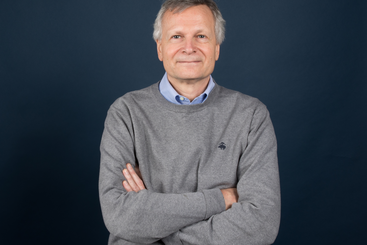
The UN Secretary General has called the Covid-19 pandemic ‘A human crisis that is fast becoming a human rights crisis’. Increased state involvement has arguably been necessary to manage the spread of the disease, but many fear that the extraordinary measures and emergency legislation governments have introduced to shut borders, enforce quarantine and track infected people may be the prelude to more autocratic and illiberal regimes. Even before these draconian measures were introduced, fundamental human rights were already reported to be under strain in many countries, with concerns over a universal surge in authoritarian nationalism and a retreat from international legal obligations.
The crisis also poses a significant threat to the maintenance of international peace and security, potentially leading to an increase in social unrest and violence. In conflict contexts, crises often provide a pretext for a long-term power grab or other abuses of emergency powers. Armed groups are using the pandemic to strengthen their positions, challenge sitting governments or reinforce their self-justifying narratives.
What are the key human rights issues raised by Covid-19? How can they be addressed? What actions are needed to ensure that we don’t lose ground on the progress made over the last 70 years? How can we leverage the opportunities presented by the crisis to build a more just, peaceful and gender-equal society?
Global leaders have conveyed through their ideas (below) a clear message through the dialogue that accountability and activism can inspire change, says our Trustee Irene Khan.
Nobel Peace Prize Laureate
For years supporters of human rights have tried to prove to the world and especially politicians that all humanity shares one fate. The Covid-19 pandemic shows that the entire world is connected together and our fates are intertwined.
No country can stay oblivious to the pain, suffering and illnesses of another country because they will spread to them eventually. Governments who have been trying to pre-order the vaccine must know that even if everyone, for example in Europe, is vaccinated they can still be infected by people from countries who have not been. Everything happening in the world in the last decade has shown us that we cannot ignore the fate of other countries.
We cannot simply shut our eyes to human rights violations and sufferings on other continents. You have seen an example of this in refugees coming to Europe from Northern Africa, Syria and the Middle East. Europe had forgotten about these regions for a very long time but these refugees were a reminder that their ignorance can ricochet back. Therefore, it is essential to pay specific attention to the plight of refugees during this challenging time. The Covid-19 pandemic should not be used as an excuse to slow down the process of dealing with asylum seekers’ cases. We should not forget the fact that vulnerable people are more at risk during challenging situations such as the current situation we are in due to Covid-19 pandemic. It is time to advance current practices, regulations and approaches toward refugees and welcome them to their new societies.
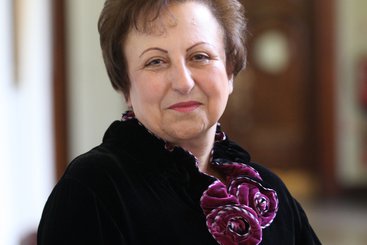
Nobel Peace Prize Laureate
Covid-19 has set the world back by several centuries. Isolation and mutual distrust prevailed initially at the international level. Amidst the chaos of the virus, many countries have acted selfishly and reprehensibly based on the perception that a single country could survive in isolation from others. This has proved untrue.
Attitudes have significantly improved and close cooperation between all states is acknowledged as necessary to eradicate the pandemic. Initiatives have emerged, such as providing aid to the poorest countries or to those with severe shortages of medical supplies. But this has not translated into real chances for peace in many countries experiencing armed conflict or civil wars.
Yemen is perhaps the most striking example of irresponsible warring parties. Unfortunately, states like Saudi Arabia and the United Arab Emirates (UAE) are promoting the continuation of conflict, despite their unswerving public statements calling to stop the war to tackle Covid-19. Worse still, the UAE has armed its allies, creating more political tensions.
The spread of the pandemic risks conflicts further escalating and going under the radar. So we need to develop a new peace strategy for times of crisis. This requires a strict legal structure to penalise states and groups with aggressive policies. The establishment of a United Nations court to deal with matters of an ethical nature, and with a mission to identify those undermining peace foundations, would be a good first step.
By taking such measures and developing a strong international position against armed conflicts, we can turn this challenge into an opportunity to restore confidence in a world free of war.
Executive Director, Center for Economic and Social Rights
The “lost decade” of austerity deprived millions of people worldwide of basic socioeconomic rights, and severely undermined the capacity of most countries’ health and social protection systems to confront the Covid-19 pandemic. Authoritarian nationalist leaders, meanwhile, have been outdoing themselves in openly attacking fundamental pillars of human rights, from the principle of asylum to the prohibition of extrajudicial killings. Three key actions are needed:
End impunity and uphold the rule of (human rights) law
The framework of human rights guarantees and legal protections is being flouted, eroded and undermined by some of the world’s most powerful heads of state, with the pandemic invoked by some as a pretext for doing so further. Strategies for reversing this trend must be devised, and mechanisms of accountability –both judicial and political – must be strengthened to create a culture of justice that enables everyone, everywhere, to enjoy their civil, political, social, economic and cultural rights.
Galvanise multilateralism
The global spread of the pandemic has highlighted the shortsightedness of nationalist responses to transnational threats. Countries of the global south, now at the epicenter, are being particularly devastated by its economic impacts, given the severe constraints on their resources (many imposed by wealthier countries and the IFIs controlled by these). Yet international cooperation has been woefully inadequate. Multilateral cooperation must be redynamized and refounded on the principle that all countries have duties to respect, protect and fulfil human rights beyond their borders.
Envision an economy for rights and dignity
The pandemic has exposed the inequities of an economic and social order premised on greed, consumerism, exploitation and systemic discrimination. An order which has concentrated wealth in the hands of a handful of men over four decades while keeping the majority of the world’s population impoverished. Many across the globe are now clamouring for a different set of values to underpin our economy. What would it look like if it were founded on values of equality, dignity, solidarity, justice and human rights? And how can social movements work together to build the collective counter-power needed to make that vision a reality?
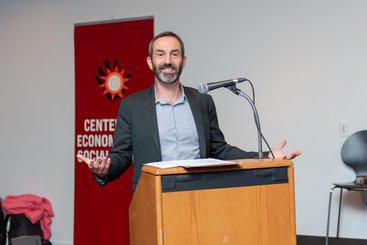
Advocate for girls’ education & women's equality and youngest Nobel Prize Laureate
World leaders have been talking about their commitment to the rights of women and girls for longer than my lifetime. Yet we are still waiting for a world where discrimination in healthcare, education and domestic responsibility is no longer a daily reality that minimises girls’ value and ambitions. We are still waiting for a world where the birth of a girl is celebrated equally to the birth of a boy. We are still waiting for a world where all people – whoever they are – come before power and profit.
The challenges all around the world right now – Covid-19, the fight for racial justice, economic crisis and more – provide an opportunity for reflection and change. I hope leaders will seize this moment. That they will identify and take action against inequality in all its forms. That they will put people at the heart of economic and social recovery. That they will promote justice as the foundation of our societies, our laws and our systems. The roadmap is there, crafted by individuals and communities who are the heart of making change; world leaders must proactively and intentionally choose this path.
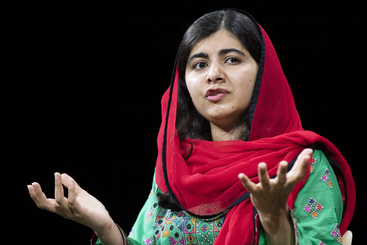
United Nations High Commissioner for Human Rights 2008-2014
If human rights are violated there can be no meaningful peace, and without peace and human rights there can be no sustainable development. This means that a holistic approach is needed to protect human rights.
Over the past decade, the world has made resounding progress in setting human rights standards and developing tools to implement them. This would not have been possible without the collective drive and actions of civil society organisations. Even now, in the midst of the unprecedented crisis created by the Covid-19 pandemic, they have taken to the streets in their thousands with energy and resilience to protest inequalities. Campaigns such as “Black Lives Matter" and the “Me Too” movement against sexual harassment inspire each and every one of us to take individual action to ensure that there is no setback where human rights are concerned.
As the UN reaches its 75th anniversary, it is a chilling fact that the inspiring promise of the Universal Declaration of Human Rights – that all human beings are born equal in dignity and in rights – is still only a dream for far too many people. Fifty million more people will be pushed into extreme poverty as a result of the crisis. The pandemic makes it clearer than ever that multilateralism, not unilateralism, is the answer for building a better new normal. We need to act globally to stem the rising tide of illiberal trends of nationalism, populism and authoritarianism that threaten our fundamental freedoms.
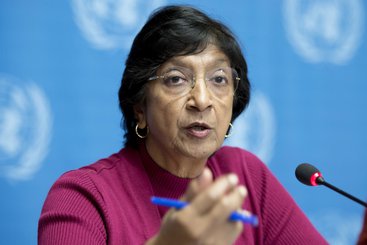
Director General at the International Committee of the Red Cross (2010-2020)
We are living a time of stark political polarisation and in an increasingly “us” versus “them” society. Narrow political agendas determine who does not belong to “us” and result in marginalisation, discrimination and gross inequality at both national and international levels. The coronavirus pandemic – that has seen a crisis of international solidarity and cooperation - risks increasing and entrenching these divisions. We have already seen many cases of “them” – whoever they may be in a particular context - being denied human rights that are meant to be universal.
We need to be particularly vigilant in these turbulent times that human rights belong to everyone – to all of us as human beings – no matter our status, gender, ethnicity, nationality, religion or political affiliation. The time is now to categorically reject the prevailing “us” versus “them” rhetoric; to build on what unites rather than divides us; and to create a universal “us” around the notion of human dignity.
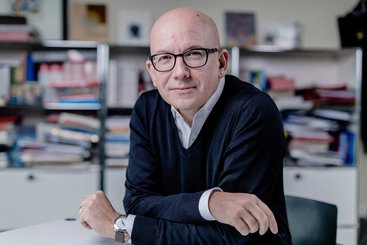
Former Under-Secretary-General at the United Nations
The social, economic and health impacts of the pandemic are unprecedented and have magnified inequality, insecurity and humanitarian challenges worldwide. People are becoming jobless, falling into poverty, hunger and desperation. The pandemic has not stopped wars and displacement. It has deepened violence and discrimination against women and girls on every front.
Its consequences have made clear that human society cannot succeed without addressing our human rights deficits and the social exclusion and fragility caused by inequality, poverty, conflict, environmental destruction, racism and gender discrimination. Societies that have invested in their public health and in the social contract with a protection floor of fundamental rights have built greater trust, unlocked the agency of everyone and achieved the most positive impacts.
It is precisely at times like this that the leadership and values of the multilateral system are needed. In this year of anniversaries (the UN Charter at 75, Beijing+25, 20 years of the UN Security Council Resolution 1325 (UNSCR), and five years since the adoption of the Sustainable Development Goals (SDGs)), we urgently need leadership of women and men from the ground up, unhampered by power rivalries. These leaders must show courage to implement global human security frameworks, forge collaborative relationships, reimagine our world anew and find the financial resources needed to create a world free from want, violence and fear.
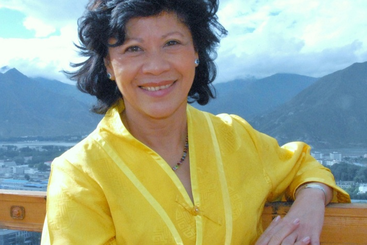
We invited young leaders to join the dialogue and have their say on what actions are needed to tackle today's biggest global challenges.